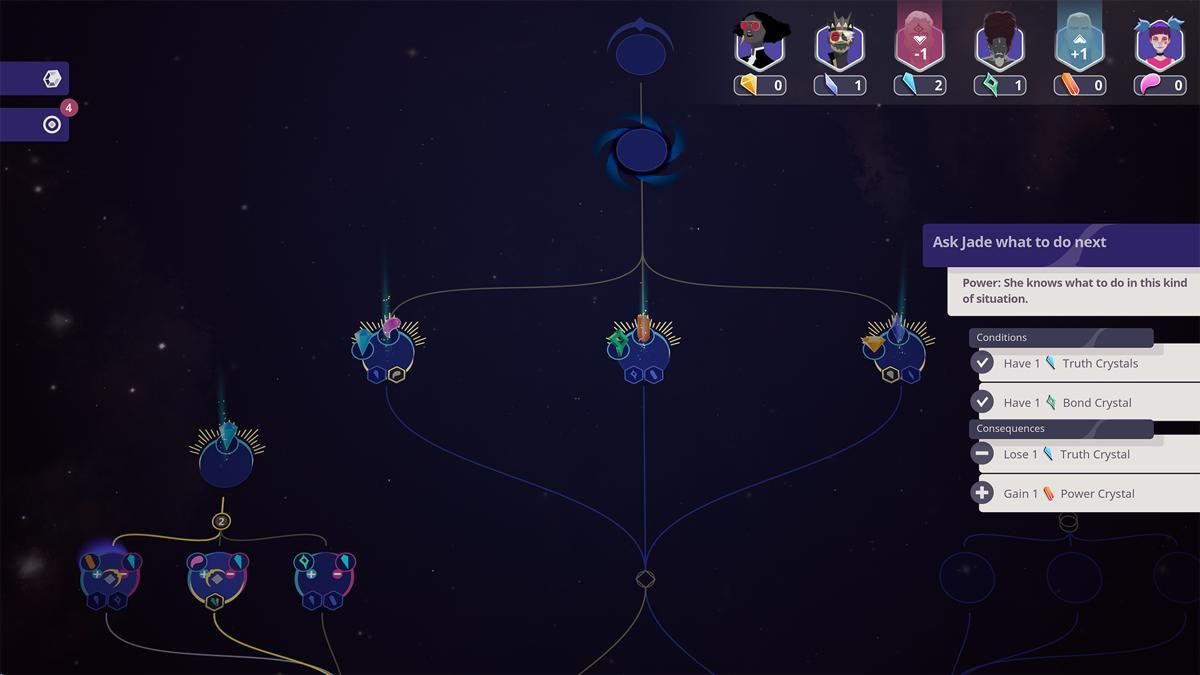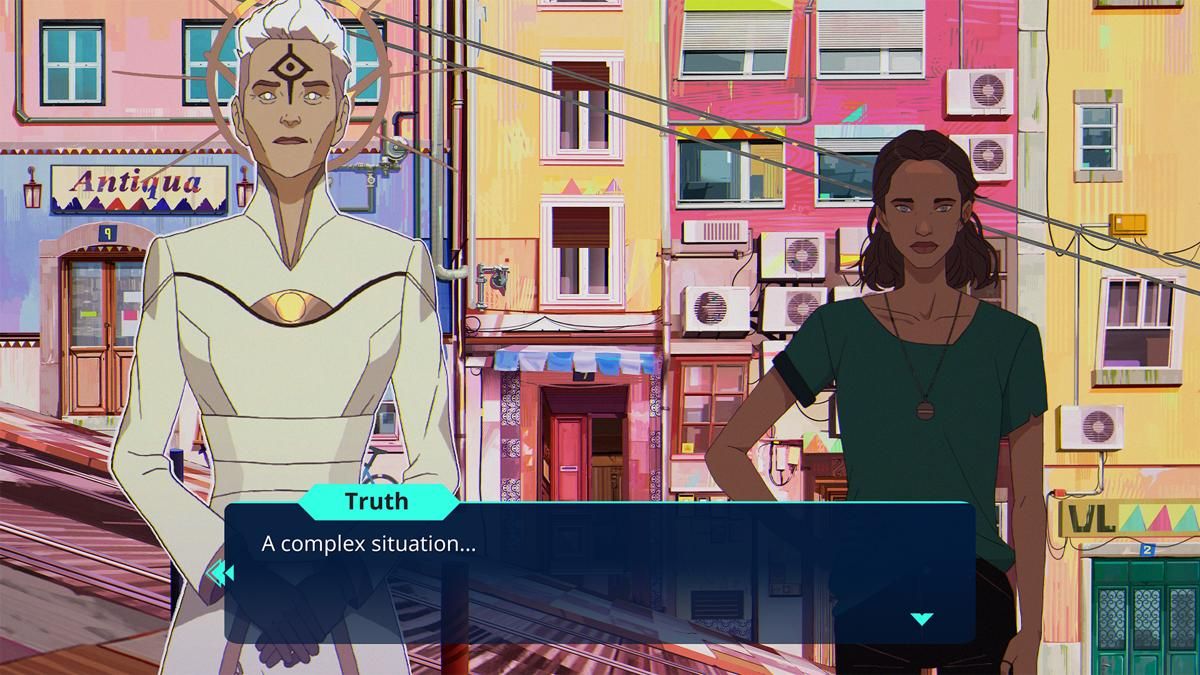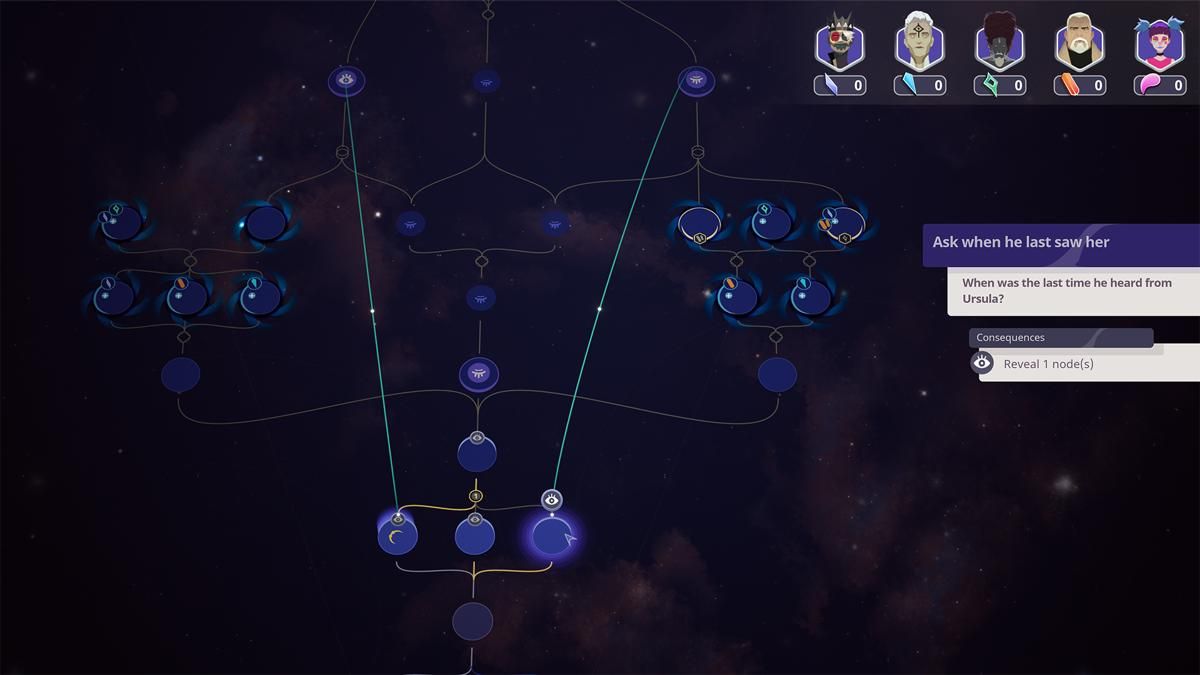At the risk of getting pelted from all corners by Homer Simpson-brand mockery with this admission, one of the most surprising revelations during one's time with Harmony: The Fall of Reverie was how much it reminded me (fondly might I add) of college-era mathematics. Of how much one is deeply interested and fascinated not just with models of deduction and problem-solving, but how things like Game Theory and Dijkstra's Algorithm can so commonly apply to facets of everyday life. Yes, a hyper-specific topic and one most people will never dream of considering all that interesting to dissect, but if one thing is true of Dontnod's latest, it's that Harmony has found a way to almost mechanize the nature of decision-making. How in Harmony's case, as it is any game of chess: the focus is more on getting the journey correct than necessarily zoning in on the destination on its own. In all its probable, possible and alternate splendor. Sometimes, simply staring at a series of branching paths is fascinating on its own.
So often in these types of releases -- games all about multiple choice, branching paths and living with the consequences of your actions -- the means by which players make their choices are confined to minimal, short-term menus or button prompts. Heat of the moment encounters whose back-end complexities are hidden from plain sight. Of course, a genre such as this will place more effort and resources towards the actual narrative and means of telling its respective story. But it's hard not to feel that temptation in seeing one's choices in all their mechanical and probable intricacies. A binary (or maybe even multiple) choice that appears only now and again where need be, but just how much of a ramification might that be?
Players seldom required to look behind the scenes, at the very nodes, routes and mapping-out of choices that have led up to that point. And while some games in recent times have opted to reveal more about their branching paths in a more concluding "here's what happened" results screen, it's rare for a game to make that network of choices its own crucial and central gameplay mechanic. But that's precisely what Dontnod have opted for here and while only introductory, it's made Harmony: The Fall of Reverie such an exciting prospect.
Not that the initial premise doesn't already stir an immediate sense of curiosity with its set-up. Another case of personal attraction it might be, with its back-and-forth between that of the real-world and the fantastical manifestation of the titular realm of Reverie. One moment seeing through the events of a fictional Southern-Europe setting one minute, the next making conversation with god-like personifications of humanity's most integral and influential traits, dubbed Aspirations. From physical to abstract -- literal to metaphorical in an instance -- for those with a nose for anthropomorphism, maybe even a touch of synesthesia (that's me practically covered), while a step into the fantastical isn't entirely a new concept to a studio like Dontnod, Harmony is perhaps the team's most deliberate intend to strike a fair balance between presentation and interaction. Between that which the game provides and that which it asks you to input.
But it's the way in which players go about making decisions and affecting how the story unfolds that is the most interesting part of all this. Not because it's in some way complex or pushes too far out of its general Visual Novel-style format. Rather the emphasis is placed on that very idea that uncertainty is ever-present. That any number of routes could throw a spanner in the works at any moment -- that to reach an ideal or targeted outcome requires one to take a leap of faith. And sometimes, having to go against one's own personal biases in favor of a better outcome in the long-term. It's fitting then that Harmony symbolizes its numerous paths by way of the Aspirations they're closely associated with. Early on, for example: deciding whether to side with Bliss or Power can determine whether you speak openly and honestly to a long-time friend or simply tell them what they want to hear. Yet later on -- as much as you try to follow your own personal preferences, in my case, picking those paths more affiliated with honesty and the matter at hand -- you find yourself going against your own stance. Not for mere contradiction's sake, but simply put: outside influences force you to think alternatively and plan for when things don't go according to plan.
Again, it's not the most extravagant or detailed idea put forth, but the way each "node" in a chapter -- another way of saying key event or crucial interaction with another character -- holds an associated element, or as the game calls it a "consequence," means that choices have far more of a rippling and overarching impact than they initially appear. Some nodes for example let you glimpse at outcomes numerous pivotal steps ahead. Some require you to play out a certain outcome that may or may not affect your chances at succeeding at other choices. Some even lock you out of a branching path completely. The latter of which you may think is rather elemental for this sub-genre -- all choices inevitably lock you out of certain routes, of course -- yet the fact Harmony shows you this, wants you to know this beforehand. Giving you the heads-up and going as far as to detail just how complex or otherwise essential each step may be to get to an ideal goal. As risky as it may seem to reveal the extent to which the game's tale can spin off in numerous directions, it surprisingly works wonders in the game's favor.
Possibly because Harmony is a game that isn't all presentation. As much onus there may be on its narrative -- an over-reaching corporation at the heart of things that, despite seemingly-moral good, may not be what they seem -- and specifically the varied personalities of its characters. There's just as much of a mechanical focus too; to repeat that former chess analogy, you can see the spaces and the pieces you need to assure victory, but getting there is where the real challenge lies. And it's inviting too to see if and how the game offers a curve-ball or a dilemma that isn't simply gameplay-focused, but personal on top. How far do I go against my own belief in honesty -- blunt it may be at times -- and truth, if it means certain relationships are kept intact? And what of these Aspirations, what's their backstory, their reasons, their probable end-game in all this? It's only because there's more of a reliance on such affinities -- or to lean more into video game terms, something akin to classes and min-maxing stats -- that makes Harmony a more interesting premise for this genre.
In many ways, Dontnod's latest feels like an evolutionary step forward from what 2018's Vampyr entailed -- a game I very much admired. One with narrative consequences, but whose consequences rippled further than just mere dialogue and interactions. Consequences whose ramifications and not-so-pleasant outcomes you truly felt. But with Harmony: The Fall of Reverie, that fear of consequence is seemingly pushed further still. Maybe not to some figurative extreme, but certainly in a way that makes navigating its branching paths and hidden possibilities all the more trickier. But it's that puzzle-like alteration on the well-trodden "your decisions will matter" shtick that finds Dontnod with another promising take to add to their well-versed portfolio of narrative-focused adventures. Harmony: The Fall of Reverie may not be the most expansive take, but it needn't be. Pleasant voice work, a fine narrative balance between real-world life and other-worldly fantasy, along with a central focus on making allegiances -- to the point of questioning one's own real-life traits -- and it stands to reason that this could be Dontnod's most mechanically-intriguing title to date.




